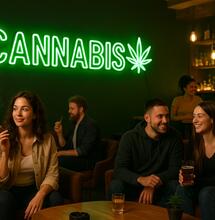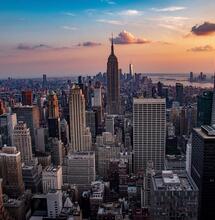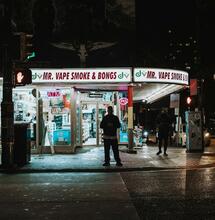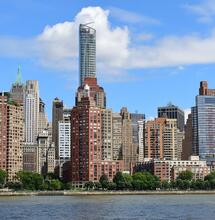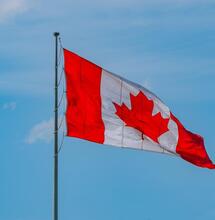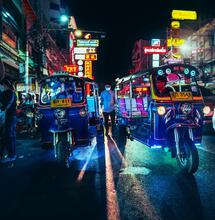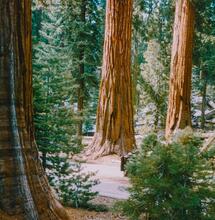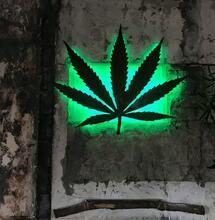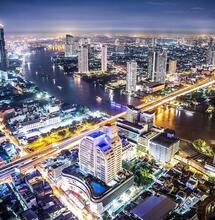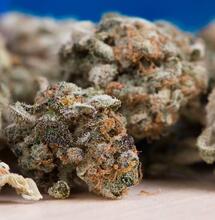New York Takes On Unlicensed Smoke Shops
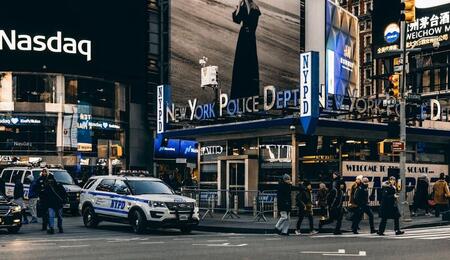
Selling pre-rolls, flower, and infused candy on the streets of New York City became the new normal when the Empire state legalized cannabis for recreational use three years ago. But most of those smoke shops have worked without a license. While New York regulators were a bit slow to roll out legal cannabis dispensaries, street dealers were fast to use gaps in the law and multiply themselves around the busiest city corners. However, a big operation is currently underway. New York authorities are targeting illegal city vendors that don’t have a license to sell weed products.
New York authorities have reportedly sealed more than 630 illegal locations in the last three months, as part of Operation Padlock to Protect. The special operation is a multi-agency project, with staff including members of the Sheriff’s Office, the New York Police Department, and the New York City Department of Consumer and Worker Protection. As part of Operation Padlock, New York authorities have also issued 51 million in civil penalties thus far, and they’ve seized an estimated $20 million in illegal cannabis products.
Unlicensed Weed Shops in New York Facing a Crackdown
It seems that authorities in New York are finally taking a hold of a situation that last year looked chaotic and unmanageable. Decisive actions taken by the task force has resulted with record-high closures of unlicensed street vendors, with the bigger purpose to protect the public and build a safe cannabis market for all New Yorkers.
“For too long, these shops have contributed to a feeling that anything goes in our city,” New York City Mayor Eric Adams said in a statement following a recent raid operation, “But we are going to continue to shut down illegal shops and will ensure that the future of legal cannabis burns bright in New York City.”
“We have been clear: illegal smoke shops will no longer be able to operate with impunity,” said Mayor Adams in the same statement.
Raids typically result in the seizure of many pounds of flower, vape products, but also psilocybin mushrooms and concentrates. Illegal cannabis products and other drugs have been found in warehouses, hidden compartments in basements, filing cabinets, luggage bags, and in plain view where the raid action takes place.
The crackdown follows after New York governor Kathy Hochul vowed to intensify action against illicit cannabis vendors earlier this year.
“Unlicensed dispensaries have littered New York neighborhoods, blatantly circumventing our laws and selling potentially dangerous products,” Hochul said at the time, when she also announced the action plan. “Enough is enough. I promised to protect our communities and hard-working, legal cannabis licensees by expediting the closure of illicit storefronts,” she added.
Under the new plan, the New York governor has granted extra authority to the Office of Cannabis Management (OCM) and local municipalities to take action against everyone who enables the sales of illicit weed products.
OCM together with the NYPD can inspect and padlock businesses if they sell illicit cannabis and pose an “imminent threat.” Posing an “imminent threat” means that a business is selling weed to minors, is doing operations in a close proximity to schools or kindergartens, is engaged in unlicensed processing of cannabis, have products that can send people to the hospital, have violent conduct, or have unlawful firearms.
Any vendor who tries to remove or damage a padlock will be bashed with a misdemeanor under the new set of rules.
If inspection shows no “imminent” harm, a business won’t be padlocked, but they will receive a notice of violation and order to stop its unlicensed activity. They can be padlocked upon a second inspection that shows they’ve continued unlicensed sales. If those vendors have other state licenses, such as for selling tobacco, alcohol, or lottery tickets, they risk losing those too if they continue with unauthorized weed retail activities.
In addition, there are penalties for landlords who permit tenants to sell cannabis legally or postpone evicting them from the premises. The fine for that is $50,000 plus having to settle five times the rent from the time they were made aware of the violation by New York City authorities.
So, all the new rules indeed make it more difficult and unsustainable for unlicensed smoke shops in the city to survive. There is outright pressure from all sides and a disciplined statewide task force that works hard with local police to implement the new cannabis policies across New York.
How Can You Tell if a Weed Shop is Licensed in New York?
When shopping for cannabis, it is easy to notice if a vendor is authorized to work. Each licensed cannabis shop should display a label on the window with a QR code that you can scan to see the Office of Cannabis Management’s website where there’s a full list of verified licensed shops. At present, there are 150 licensed dispensaries across New York State, according to the OCM.
Can You Smoke on the Streets of New York?
Everyone of legal age can smoke or vape cannabis in spaces where permissible. The Smoke Free Air Act (SFAA) prohibits smoking and use of electronic cigarettes in most workplaces and public spaces. That applies for cannabis as well. Therefore, cannabis cannot be smoked in areas near hospital entrances, in parks, beaches, and pedestrian zones. In addition, it’s prohibited to smoke or vape cannabis in motor vehicles, even if they are parked. It is illegal to smoke weed in restaurants, parks, event spaces, or any business, including marijuana dispensaries. Breaking these rules may result in a civil summons and fine.
Are Edibles Legal in New York?
There used to be a ban on edibles in New Jersey, but edibles have been legal in New York since the start of state legalization. Recreational users are permitted to possess up to 3 ounces of cannabis flower and 24 grams of cannabis concentrate, which includes edibles and oils. These are the legal amounts of cannabis permitted for both New Yorkers and those who visit New York City as tourists.
Also read on Soft Secrets:
- New York Unlicensed Smoke Shops Not Paying Fines




